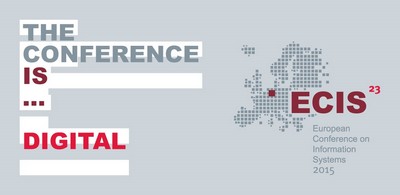DOI
10.18151/7217482
Abstract
The high e-mail amounts that individuals sent back and forth each day are one of the major causes for information overload. Knowledge seems to help overcoming information overload. However, it is not clear which knowledge areas are helpful. Therefore, we examine knowledge areas supporting the encoding and decoding of e-mails by investigating cognitive processes that allow knowledge building to avoid e-mail induced information overload. A novel theoretical perspective is developed which draws on knowledge as acquired schemas which allows bypassing working memory through automation. We employed a case study design which results in a conceptual model relating three knowledge areas: (1) channel knowledge, (2) message topic knowledge, and (3) communication partner knowledge. By drawing on cognitive load theory, we explain how these knowledge areas allow the reduction of e-mail induced cognitive load as a conceptualization of information overload.
Recommended Citation
Sobotta, Nikolai; Hummel, Markus; and Holten, Roland, "A Cognitive Learning Perspective on Encoding and Decoding E-mails" (2015). ECIS 2015 Completed Research Papers. Paper 172.
ISBN 978-3-00-050284-2
https://aisel.aisnet.org/ecis2015_cr/172


